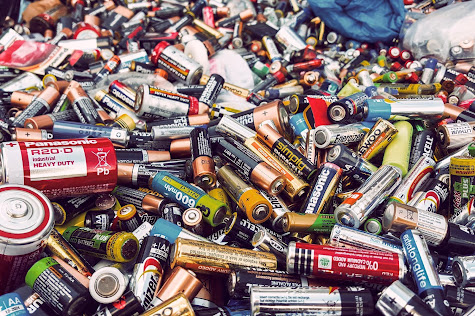Battery scrap will account for about 78 percent of recyclable materials globally in 2025. It could take a decade or more to acquire enough used lithium-ion batteries.
Sales of electric cars and trucks are taking off, and the auto and battery industries are investing billions of dollars to upgrade and build factories. These cars could help address climate change, but batteries pose their own problems.
Raw materials can be hard to mine, are often found in countries with poor human rights records and require processing that leaves behind noxious waste.
Those ingredients are also highly reusable. And now a race is on to collect and recycle used lithium-ion batteries. Venture capitalists, auto makers and energy companies are pouring money into dozens of start-up recycling companies in North America and Europe.
''We're weaning our entire society off fossil and carbon-intensive fuels - we can't underestimate the scale of that challenge,'' said Gavin Harper, a research fellow at the University of Birmingham in England, who studies battery recycling. ''The demand is going to be so enormous.''
BUT for all the optimism, this new business faces a daunting challenge : Few batteries will be available to recycle for a decade or more.
TESLA, WHICH DOMINATES the electric vehicle business, began selling cars in 2008 and until 2017 sold fewer than 100,000 cars a year. There are other sources to recycle today, including hybrids and consumer electronics, but the supply is limited and collection can be challenging.
That has left recycling companies in a difficult position. They need to invest in factories, machinery and workers or risk losing ground to competitors. But if they invest too quickly, they could run out of money before ageing batteries arrive at their loading docks.
''You have people that are just burning through money, because you don't have the feed stock to be able to make the materials to sell,'' said Eric Frederickson, the managing director of operations for Call2Recycle, a program that helps recyclers find old batteries.
The companies also have to figure out how to find, collect and dismantle batteries.
They have to work with many dismantlers, scrap yards and nonprofit groups. Batteries are prone to fires and packaged and built differently from model to model, so taking them apart can be complicated and dangerous.
After years of losing ground to China U.S. and European executives and lawmakers are optimistic that battery recycling can quickly help establish a domestic battery industry. But they may be in for a rude awakening, said Mr. Melin, a consultant.
''There won't be a lot of material to recycle for a long time,'' Mr.Melin said. ''And that is obviously a positive thing because the main reason is that the batteries are in the cars.
So can recycling keep pace with electric vehicles?
The World Students Society thanks authors Niraj Chokshi and Kellen Browning.

.png)


0 comments:
Post a Comment
Grace A Comment!